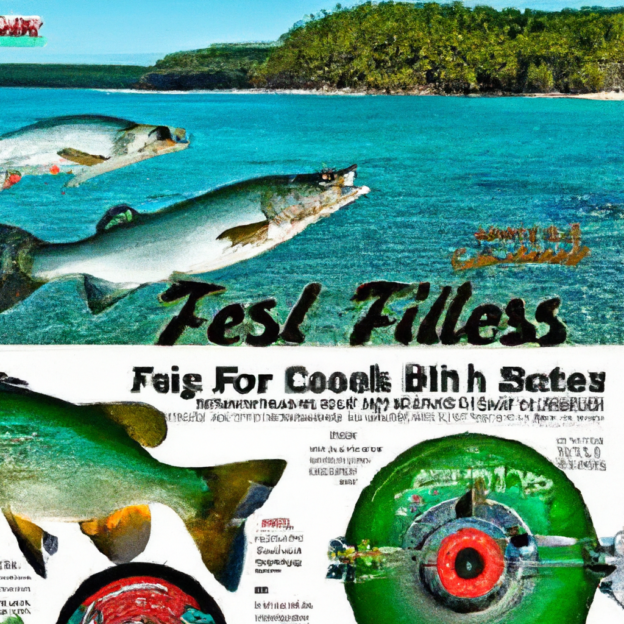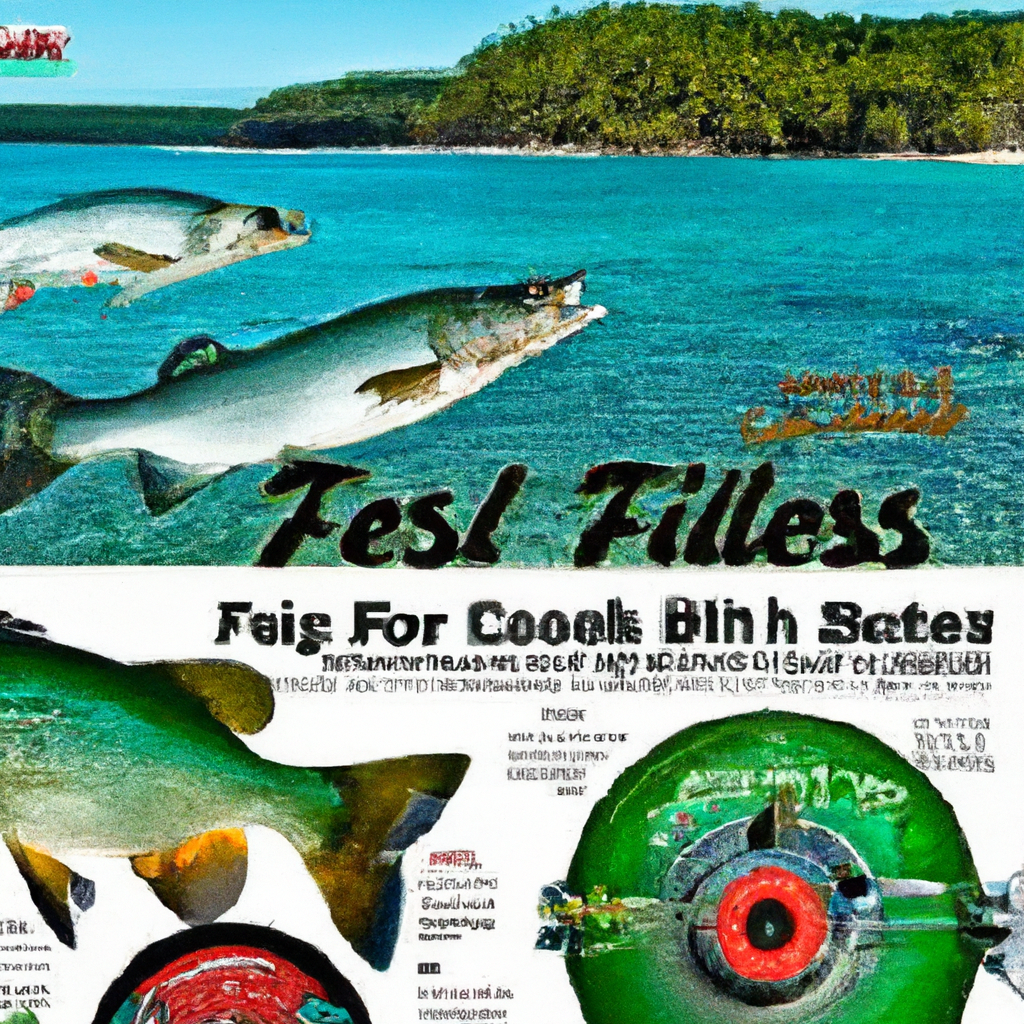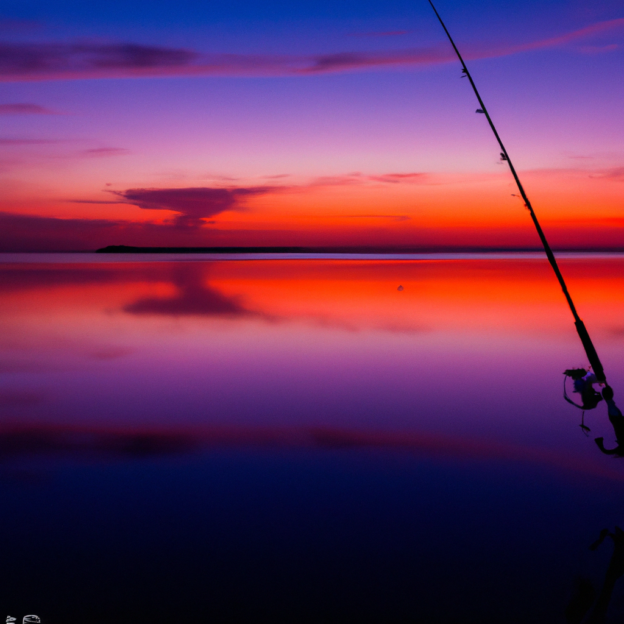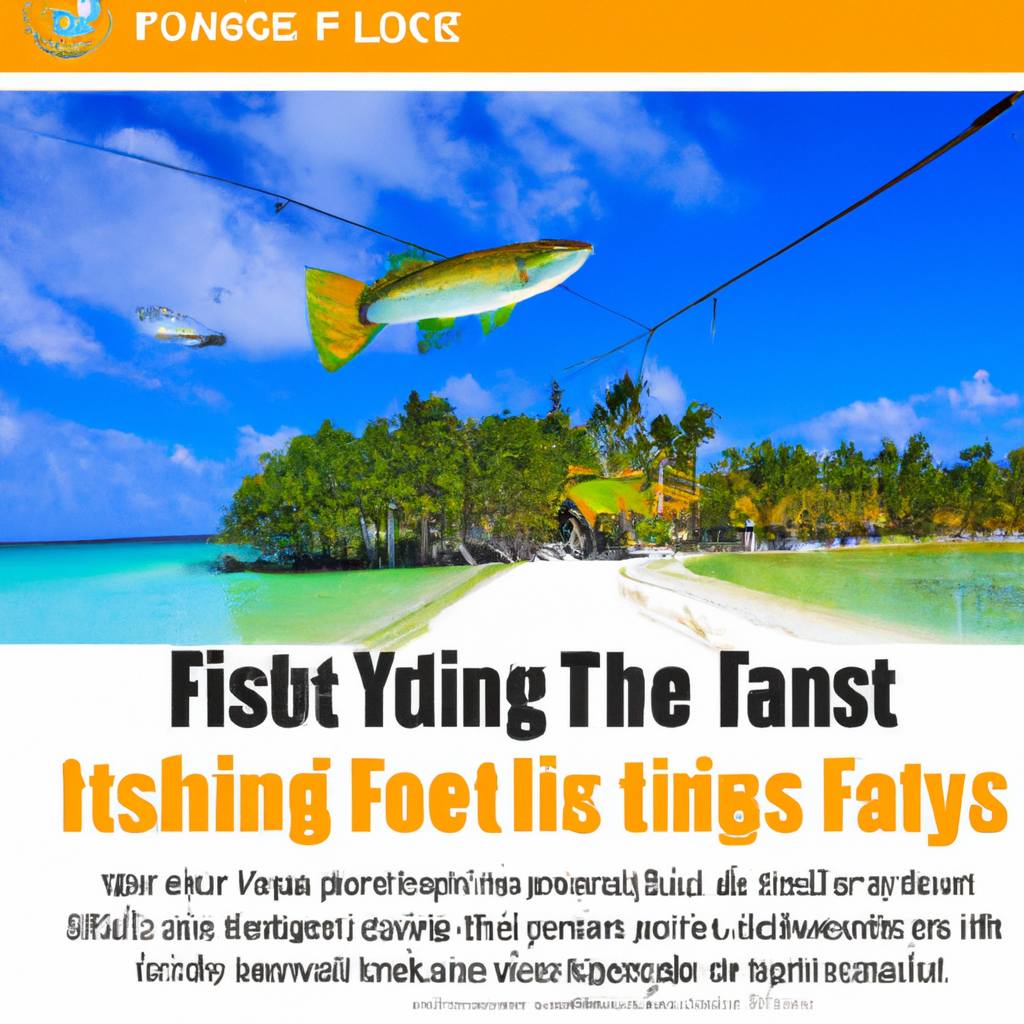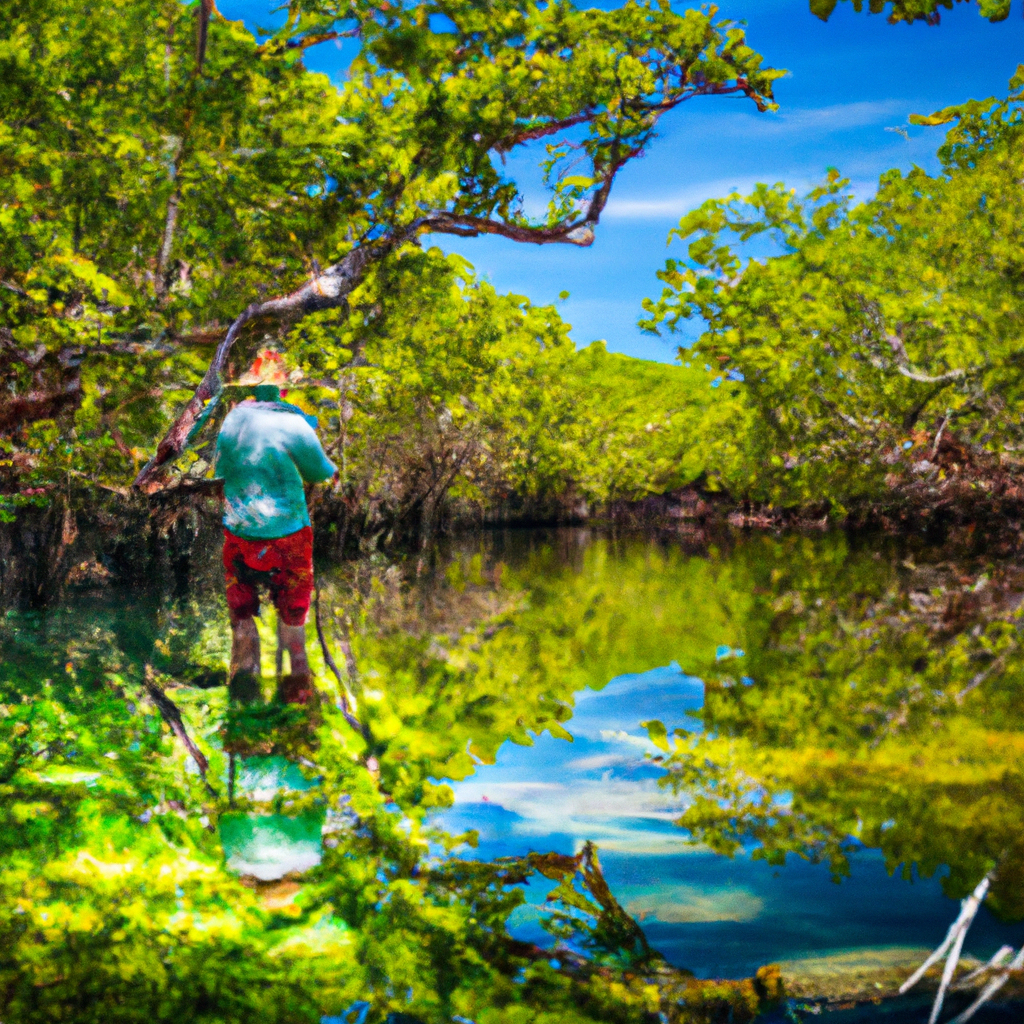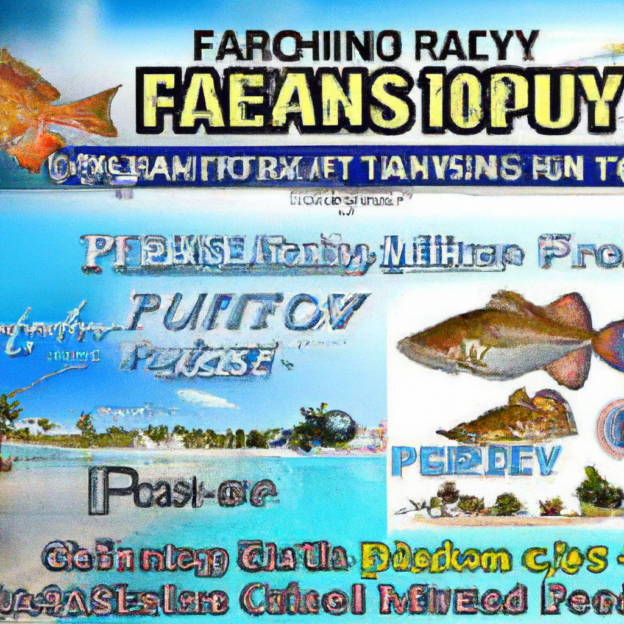If you’re searching for the ultimate adventure in the Florida Keys, look no further than Tarpon fly fishing guides. With their expertise and knowledge of the local waters, these guides will lead you on an unforgettable experience, as you pursue the iconic and elusive Tarpon. Whether you’re a seasoned angler or a first-timer, these friendly guides will provide you with all the tools and techniques you need to hook into one of these magnificent creatures. Get ready to feel the rush as you cast your line and test your skills against the Tarpon’s legendary strength and acrobatics. Don’t miss out on the chance to create lifelong memories while exploring the beautiful Florida Keys.

Choosing the Right Tarpon Fly Fishing Guide
Are you ready to experience the thrill of tarpon fly fishing in the Florida Keys? If so, one of the most important decisions you’ll make is choosing the right fishing guide to ensure an enjoyable and successful trip. With so many options available, it can be overwhelming to know where to start. That’s why it’s essential to do your research, read reviews and testimonials, check experience and credentials, consider local knowledge, and inquire about equipment and techniques.
Researching the Options
When it comes to tarpon fly fishing guides in the Florida Keys, there are numerous options to choose from. Start by researching different guides and fishing companies in the area. Look for those that specialize in tarpon fly fishing and have a strong reputation. Pay attention to their experience, the services they offer, and the feedback from past clients.
Reading Reviews and Testimonials
To get a better idea of the quality of service provided by a tarpon fly fishing guide, take the time to read reviews and testimonials from previous customers. These reviews can give you valuable insights into the guide’s professionalism, knowledge, and ability to put clients on the fish. Look for guides with consistently positive feedback and glowing testimonials.
Checking Experience and Credentials
Experience and credentials are crucial when choosing a tarpon fly fishing guide. You want someone who knows the waters of the Florida Keys inside and out and has a proven track record of success. Check for any professional certifications, associations, or affiliations that demonstrate the guide’s dedication to their craft. A guide with years of experience and the necessary credentials will give you confidence in their abilities.
Considering Local Knowledge
Choosing a tarpon fly fishing guide with local knowledge can make a significant difference in your fishing experience. Knowledge of the local waters, tarpon migration patterns, and feeding habits is essential for finding and hooking these prized gamefish. Local guides often have insider tips and secret spots that can greatly increase your chances of success.
Inquiring About Equipment and Techniques
Before booking a tarpon fly fishing guide, it’s important to inquire about the equipment they provide and the techniques they employ. Find out what kind of fly rods, reels, lines, and flies they use. A skilled guide will have top-notch equipment and a variety of flies to handle different conditions. Additionally, ask about their preferred fishing techniques, such as sight fishing, drifting, or chumming. Understanding their approach will help you gauge whether their style aligns with your preferences.
Best Time for Tarpon Fly Fishing in the Florida Keys
To maximize your chances of landing a trophy tarpon in the Florida Keys, timing is everything. Understanding the migration patterns, peak seasons, weather and water conditions, moon phases, and avoiding crowds are all key factors in determining the best time for tarpon fly fishing.
Understanding the Migration Patterns
Tarpon in the Florida Keys follow seasonal migration patterns, moving through the area in search of food and spawning grounds. They typically arrive in larger numbers during the spring and early summer months. Understanding these patterns can help you plan your trip when the fish are most likely to be present and actively feeding.
Peak Season for Tarpon Fishing
The peak season for tarpon fishing in the Florida Keys is generally from April to July. During this time, the water temperatures are ideal, and the tarpon are more abundant. Many anglers consider May and June as the prime months for targeting these silver kings. However, it’s important to note that tarpon can be caught year-round in the Florida Keys, so there are opportunities outside of the peak season as well.
Considering Weather and Water Conditions
When planning your tarpon fly fishing trip, it’s essential to consider weather and water conditions. Tarpon prefer warm water temperatures, typically ranging from 75 to 85 degrees Fahrenheit. As such, the summer months offer more favorable conditions. Additionally, calm winds and clear skies are optimal for sight fishing, as it allows for better visibility in the water.
Planning Around Moon Phases
Tarpon fishing enthusiasts often pay close attention to moon phases when planning their trips. The tides and moon phases can influence the fish’s behavior and feeding patterns. Many anglers prefer fishing during the new moon or full moon periods when tidal movements are stronger. However, it’s important to note that tarpon can be caught during any moon phase, and skilled guides will know how to adapt their strategies accordingly.
Avoiding Crowds
The popularity of tarpon fishing in the Florida Keys means that certain areas can become crowded during peak times. To avoid overcrowded fishing spots and increase your chances of finding less-pressured fish, consider planning your trip during shoulder seasons or midweek when there is typically less angling pressure. This will allow you to enjoy a more peaceful and intimate tarpon fly fishing experience.
Booking a Tarpon Fly Fishing Guide
Now that you’ve done your research and determined the best time for tarpon fly fishing in the Florida Keys, it’s time to book your guide. Booking a tarpon fly fishing guide involves contacting and communicating, discussing rates and packages, confirming availability, arranging for transportation, and understanding cancellation policies.
Contacting and Communicating
Once you’ve identified a tarpon fly fishing guide that meets your criteria, reach out to them to inquire about their availability and services. This initial contact is an opportunity to establish a rapport and gain a better understanding of what to expect on your trip. Clear and open communication with your guide will ensure that all your questions are answered and that they have a clear understanding of your expectations.
Discussing Rates and Packages
During the booking process, it’s important to discuss rates and packages with your tarpon fly fishing guide. They will typically offer various options, including half-day, full-day, and multi-day trips. Inquire about the pricing structure, whether there are any additional fees, and what is included in the package. Understanding the costs upfront will help you plan your budget accordingly.
Confirming Availability
Before finalizing your booking, confirm the guide’s availability for your desired dates. Tarpon fishing guides can be in high demand during peak seasons, so it’s crucial to secure your spot as early as possible. If your preferred guide is not available, they may be able to recommend an alternative guide who can accommodate your dates.
Arranging for Transportation
When booking a tarpon fly fishing guide in the Florida Keys, consider how you will get to the fishing location. Depending on where you’re staying, you may need to arrange transportation to and from the meeting point. Some guides offer transportation services, while others may provide recommendations for local transportation options.
Understanding Cancellation Policies
Life is unpredictable, and sometimes plans change. Before finalizing your booking, make sure you understand the guide’s cancellation policy. This includes knowing the deadline for canceling without penalty and whether any deposits are refundable. Being aware of these policies will help you navigate any unforeseen circumstances that may arise.
Essential Gear for Tarpon Fly Fishing in the Florida Keys
To fully enjoy your tarpon fly fishing experience in the Florida Keys, it’s essential to have the right gear. The necessary equipment includes a fly rod and reel, fly line and backing, leaders and tippets, flies and lures, as well as sun protection and appropriate clothing.
Fly Rod and Reel
When targeting tarpon, a stout fly rod and reel setup is essential. A 10 or 12-weight fly rod with a fast action is recommended to handle the size and power of tarpon. Matched with a quality saltwater fly reel that has a strong drag system, this setup will give you the backbone needed to land these powerful gamefish.
Fly Line and Backing
Choosing the right fly line and backing is crucial for tarpon fly fishing. A weight-forward floating line is the most common choice, as it allows for accurate casting and presentation. Backing is necessary to provide extra line capacity and to handle the blistering runs of a hooked tarpon.
Leaders and Tippets
When it comes to leaders and tippets for tarpon, durability and strength are key. Most anglers opt for heavy-duty fluorocarbon leaders ranging from 9 to 12 feet in length. Tippets should be 0x to 3x in strength, depending on the size of the flies you are using and the aggressiveness of the fish.
Flies and Lures
Choosing the right flies and lures for tarpon fly fishing can be a daunting task. Popular fly patterns include Tarpon Toads, EP Mullet, and Cockroach variations. These flies mimic the baitfish that tarpon feed on and are typically in larger sizes, ranging from 1/0 to 5/0. Lures such as soft plastics and swimbaits can also be effective in enticing tarpon.
Sun Protection and Clothing
Tarpon fly fishing in the Florida Keys requires proper sun protection and clothing. The intense sun exposure calls for the use of sunscreen with a high SPF, polarized sunglasses to reduce glare, and a wide-brimmed hat for additional shade. Lightweight, breathable clothing that offers UV protection is recommended to keep you cool and protected from the elements.

Techniques and Strategies for Tarpon Fly Fishing
To increase your chances of success in tarpon fly fishing, it’s important to understand the techniques and strategies specific to targeting these powerful gamefish. The art of presentation, dealing with tarpon behavior, understanding feeding patterns, mastering the hookset, and fighting and landing tarpon are all key aspects to consider.
The Art of Presentation
Presentation is crucial when targeting tarpon on the fly. Tarpon can be finicky and easily spooked, so it’s important to make accurate and delicate casts. Practice your casting skills to ensure you can place your fly accurately at different distances and in various wind conditions. Pay attention to the direction and speed of the current to achieve a natural presentation.
Dealing with Tarpon Behavior
Understanding tarpon behavior will greatly improve your chances of hooking them. Tarpon often roll or “gulp” air at the surface, which can indicate their whereabouts. Look for signs of rolling fish, movement in the water, or birds diving for baitfish. Additionally, tarpon often feed in specific areas and at certain times of the day, so paying attention to these patterns can be beneficial.
Understanding Feeding Patterns
Tarpon have specific feeding patterns that can help you target them effectively. They are known to feed aggressively during outgoing tides when baitfish and other prey are flushed out of the mangroves or flats. Early morning and late afternoon tend to be prime feeding times, but tarpon can also be caught throughout the day. Pay attention to the prey species present in the area and match your fly selection accordingly.
Mastering the Hookset
Hooking a tarpon is a moment of excitement and adrenaline. However, it’s important to execute a proper hookset to ensure the fly penetrates the fish’s hard mouth. When a tarpon eats your fly, wait for the fish to fully turn before setting the hook with a strong strip strike. Avoid striking too early, as this can result in a pulled fly or a missed opportunity.
Fighting and Landing Tarpon
Once hooked, tarpon are known for their acrobatic jumps, powerful runs, and stubborn resistance. Fighting and landing a tarpon requires both skill and patience. Keep a tight line on the fish, allowing it to make its initial runs while avoiding excessive pressure on the rod. Use the rod’s flexibility to absorb the fish’s jumps and sudden movements. Trust your guide’s instructions and be prepared for a thrilling battle.
Etiquette and Conservation in Tarpon Fly Fishing
In tarpon fly fishing, practicing proper etiquette and conservation is crucial to maintain the health of the fishery and ensure future opportunities for anglers. Respecting fishing regulations, handling and releasing tarpon properly, minimizing impact on the environment, showing respect to other anglers, and educating and promoting conservation are all important considerations.
Respecting Fishing Regulations
Fishing regulations are in place to protect the tarpon population and sustain the fishery. It’s essential to familiarize yourself with the local fishing regulations and adhere to them. This includes knowing the bag and size limits, any closed seasons or areas, and any specific gear restrictions. By respecting these regulations, you help preserve the resource for future generations.
Handling and Releasing Tarpon
Proper handling and releasing techniques are crucial to the survival of tarpon after catch-and-release. Avoid excessive handling and do not remove the fish from the water if possible. Using barbless hooks, keeping the fish in the water while removing the fly, and supporting the tarpon’s underside are all measures that minimize stress and increase the chances of survival.
Minimizing Impact on the Environment
Fishing in the Florida Keys is a privilege, and it’s important to minimize your impact on the delicate marine environment. Avoid anchoring on seagrass beds or coral reefs, as they are sensitive habitats. Do not discard any trash or fishing line in the water, and pick up any litter you encounter. Respect the natural beauty of the area and leave it as you found it.
Showing Respect to Other Anglers
The Florida Keys can be a popular fishing destination, especially during peak times. It’s crucial to show respect to other anglers on the water. Avoid encroaching on someone else’s fishing spot and give other anglers ample space. Be mindful of your noise level and the wake created by your boat to avoid disturbing nearby anglers.
Educating and Promoting Conservation
The sport of tarpon fly fishing provides an opportunity to educate and promote conservation efforts. Share your knowledge and experiences with others, both on and off the water. Encourage catch-and-release practices, responsible angling, and respect for the environment. By promoting conservation, you contribute to the long-term sustainability of the tarpon fishery in the Florida Keys.
Exciting Locations for Tarpon Fly Fishing in the Florida Keys
The Florida Keys offer a variety of exciting locations for tarpon fly fishing. From the remote and pristine Marquesas Keys to the vibrant fishing community of Key West, each location has its own unique charm and offers different fishing opportunities.
Marquesas Keys
The Marquesas Keys, located roughly 25 miles west of Key West, are a remote and pristine group of islands that offer excellent tarpon fly fishing opportunities. The crystal-clear waters surrounding the Marquesas are home to large numbers of tarpon, as well as bonefish and permit. Fishing in this untouched and breathtakingly beautiful area is a truly immersive and unforgettable experience.
Key West
Key West, often referred to as the “Tarpon Capital of the World,” is a renowned destination for tarpon fly fishing. The island is situated at the convergence of the Gulf of Mexico and the Atlantic Ocean, creating prime habitat for tarpon. Key West offers a variety of fishing spots, including flats, channels, and bridges, all teeming with tarpon. The vibrant fishing community and lively atmosphere make Key West a must-visit location for tarpon enthusiasts.
Islamorada
Located in the Upper Florida Keys, Islamorada is another popular destination for tarpon fly fishing. Known as the “Sportfishing Capital of the World,” Islamorada boasts abundant tarpon populations and a diverse range of fishing opportunities. From inshore flats and backcountry channels to nearshore reefs, there are numerous spots to target these silver kings. The laid-back atmosphere and welcoming fishing community make Islamorada an angler’s paradise.
Boca Grande Key
Boca Grande Key, located in the Lower Florida Keys, is renowned for its world-class tarpon fishery. The waters surrounding the key are home to some of the largest tarpon in the Florida Keys. Fly fishing around the bridges and channels of Boca Grande Key offers thrilling opportunities to target trophy-sized tarpon. The raw beauty and solitude of this location add to the allure of a tarpon fly fishing adventure.
Big Pine Key
Big Pine Key, situated between Marathon and Key West, is known for its diverse marine ecosystem and pristine natural beauty. The flats and channels around Big Pine Key are home to tarpon, as well as bonefish and permit. The less crowded nature of this area provides a tranquil and intimate fishing experience. Whether you choose to fish from a skiff or wade the flats, Big Pine Key offers exciting tarpon fly fishing opportunities.
Preparing for a Tarpon Fly Fishing Trip
Preparation is essential for a successful and enjoyable tarpon fly fishing trip in the Florida Keys. From obtaining fishing licenses and making travel arrangements to informing about dietary restrictions, packing essential items, and practicing casting and fly selection, taking care of these details will ensure a stress-free and memorable adventure.
Obtaining Fishing Licenses
Before embarking on your tarpon fly fishing trip, make sure to obtain the necessary fishing licenses. Florida requires a valid saltwater fishing license for all anglers over the age of 16. Licenses can be easily obtained online through the Florida Fish and Wildlife Conservation Commission website or from authorized retailers.
Making Travel Arrangements
Once you have secured your tarpon fly fishing guide and confirmed the dates, it’s time to make travel arrangements. Book your flights, secure accommodations near your fishing location, and consider rental car options if needed. It’s always a good idea to arrive a day or two early to acclimate to the local conditions and ensure you start your trip well-rested.
Informing About Dietary Restrictions
If you have any dietary restrictions or food allergies, it’s important to inform your guide in advance. Many fishing charters provide food and beverages during the trip, so they need to be aware of any special dietary requirements or accommodations. By communicating your needs, they can ensure you have an enjoyable and worry-free experience.
Packing Essential Items
When packing for your tarpon fly fishing trip, it’s important to bring essential items to ensure your comfort and safety on the water. These items include sunscreen, a wide-brimmed hat, polarized sunglasses, a rain jacket, a camera or GoPro for capturing your memories, a water bottle, and any necessary medications or personal items. Additionally, don’t forget to pack your fly fishing gear, including rods, reels, lines, and flies.
Practicing Casting and Fly Selection
To maximize your chances of success on your tarpon fly fishing trip, it’s beneficial to practice your casting skills and become familiar with fly selection. Consider spending time practicing your casting, both on grass and in the water, to improve your accuracy and distance. Experiment with different fly patterns and sizes to determine what works best in different situations. This preparation will help you feel more confident and comfortable when targeting tarpon in the Florida Keys.
Benefits of Hiring a Tarpon Fly Fishing Guide
Hiring a tarpon fly fishing guide in the Florida Keys offers numerous benefits that can enhance your fishing experience. From gaining access to local insights and experience to increasing your chances of success, enjoying a hassle-free and well-planned trip, learning and improving your skills, and creating memorable experiences, a guide can make a significant difference in your tarpon fly fishing adventure.
Access to Local Insights and Experience
Tarpon fly fishing guides in the Florida Keys possess valuable local insights and years of experience that can greatly enhance your fishing knowledge. They have spent countless hours on the water, honing their skills and learning the intricacies of the fishery. Guides can share their expertise, providing you with tips, techniques, and secret spots that would otherwise take years to discover on your own.
Increased Chances of Success
The expertise and local knowledge of a tarpon fly fishing guide significantly increase your chances of hooking and landing tarpon. They know where to find the fish, when they are most active, and what flies and techniques are most effective. Their experience allows them to adapt to changing conditions and maximize your fishing opportunities. With a guide by your side, you’ll have the best chance of experiencing the thrill of landing a tarpon.
Less Hassle and Planning
Planning a tarpon fly fishing trip can be time-consuming and overwhelming, especially if you’re unfamiliar with the area. Hiring a guide eliminates much of the hassle and planning, as they handle the logistics and details of the trip. From arranging fishing licenses and coordinating transportation to providing all the necessary gear, a guide ensures that everything is taken care of, allowing you to focus on enjoying the fishing experience.
Learning and Improving Skills
Tarpon fly fishing guides not only provide you with an unforgettable fishing adventure but also offer an opportunity to learn and improve your skills. Whether you’re a novice angler or an experienced fly fisherman, a guide can provide valuable insights, instruction, and feedback to help you become a better angler. They can offer guidance on casting techniques, fly selection, presentation, and other aspects of tarpon fly fishing.
Creating Memorable Experiences
One of the most rewarding aspects of hiring a tarpon fly fishing guide is the opportunity to create lasting memories. A skilled guide will not only put you on fish but also create a personalized experience tailored to your preferences. They can share stories, anecdotes, and local history, making your trip more than just a fishing excursion. The camaraderie and shared moments on the water with a guide can create memories that will last a lifetime.
Conclusion
Tarpon fly fishing in the Florida Keys is a bucket-list adventure for anglers around the world. To ensure a successful and enjoyable experience, the key is choosing the right tarpon fly fishing guide. By researching your options, reading reviews and testimonials, checking experience and credentials, considering local knowledge, and inquiring about equipment and techniques, you can make an informed decision. Once you’ve found the perfect guide, book your trip, prepare your gear, and get ready for the excitement of hooking and battling the magnificent tarpon. With the right guide by your side, a tarpon fly fishing trip in the Florida Keys will be an unforgettable journey filled with thrilling encounters, natural beauty, and unforgettable memories.




